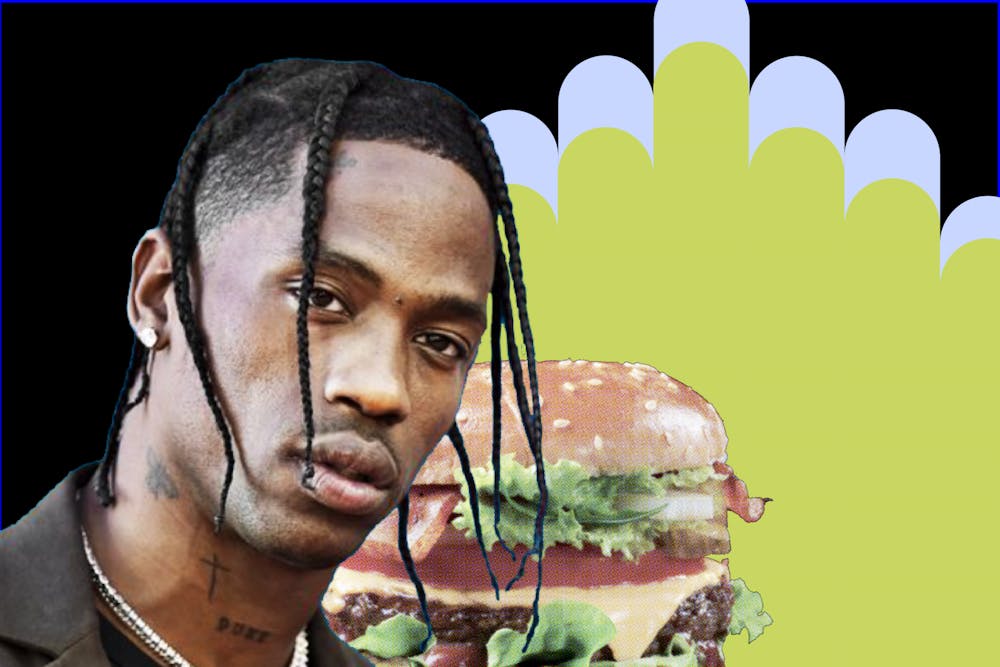A year ago, Travis Scott dominated the stage under a flurry of multicolor lights as a headliner for the Made in America Festival in Philadelphia. Marked by dazzling stage effects and hectic mosh pits, it seems almost impossible in the age of COVID–19 to imagine thousands of strangers colliding and screaming along to massively popular hits like "STARGAZING" in such close quarters. Now, after months of canceled tours and shows worldwide, coronavirus has forced artists like Scott to look towards other streams of revenue.
With the rise of streaming in recent years, musicians have turned to live performances and merchandise to make the bulk of their profits. The coronavirus complicated one of the music industry’s main sources of income when concerts inevitably became social distancing nightmares. To make matters worse, nation–wide shutdowns initially decreased streaming numbers due to less work commutes, overall travel time, and gym sessions. Some artists, particularly Scott, have identified the importance of brand partnerships as an alternative way to both boost image and provide a new stream of revenue.
“You know why I’m here” became a very familiar phrase to McDonald’s employees in early September during the limited–edition release of the Travis Scott Meal. Viral TikTok videos saturated the app's For You page with fans pulling up to the drive–through window blasting SICKO MODE to try out the rapper’s meal. The campaign, fueled by sheer star power and online buzz, led to a shortage in Quarter Pounders and, more importantly for the fast food giant, helped connect them to an audience that’s been a “weak spot over the past 20 years.” Following the success of Scott’s brand deal, McDonald’s rolled out another collaboration with J Balvin in what seems to be the start of a revolving door of celebrity meals.
Scott's McDonald’s campaign was not the first time he's turned to alternative methods of reaching his fans and promoting his music without the traditional method of touring. In April of 2020, near the beginning of quarantine and state shutdowns, he held a “concert” on popular gaming platform Fortnite. In a set lasting around 10 minutes, fans could virtually float through the air while a gargantuan Scott performed, an experience completely unique to a fully online environment.
The Fortnite performance was an unequivocal triumph for Scott. Alpha Data noticed an “immediate and significant” bump in his music streams following his event announcement, and Fortnite sent out an email about Travis Scott Nerf merchandise retailing for $65–$75 a piece after 12 million users attended the concert. Even with its innovation, not everyone was impressed—Rolling Stone magazine commented on the plastic, marketed feel of the experience, labeling Scott a “detailed capitalist, making sure to wear an assortment of his coveted Jordan collaborations.”
With everyone stuck inside, social media has positioned itself as a way for artists to connect with their fans in a semi–personal way. Companies have especially noticed the power of celebrities to reach younger demographics during COVID–19. Brands, capitalizing on artists' influence, have emphasized partnering in more low–key ways to promote their product. Jessie Reyez live–streamed a 40 minute performance following the cancellation of her tour with Billie Eilish in April. Casually but pointedly keeping a Jameson bottle in the shot, Reyez’s partnership paid for most of her crew’s lost wages, proving the value in musician–corporation deals. Justin Bieber recently partnered with Crocs to create a limited edition shoe. While there was nothing subtle about Travis Scott’s Fortnite performance or McDonald’s partnership, he is one of the first artists to so masterfully navigate through the limitations of the pandemic.
While global superstars like Scott and Bieber have their personal brands and adoring fans to rely on during a concert–less time, indie artists have been hit by the pandemic without the comfortable flexibility that big names possess. Smaller musicians depending on gigs at bars and restaurants found themselves without security during lockdown in an already–precarious occupation. To make matters worse, most small artists "don't typically qualify for unemployment ... employer–sponsored health coverage and paid sick leave are for the most part off the table." In the age of streaming, the coronavirus has completely destroyed indie artists' main, and perhaps only substantial, source of income.
With the return of concerts most likely remaining a distant and faint possibility, the music industry has been forced to scramble and adapt. As more artists follow Scott's lead to brazenly partner with major brands, we can expect more collaboration between the music industry and unrelated sectors—COVID may have permanently altered the way we interact with artists in the future.

